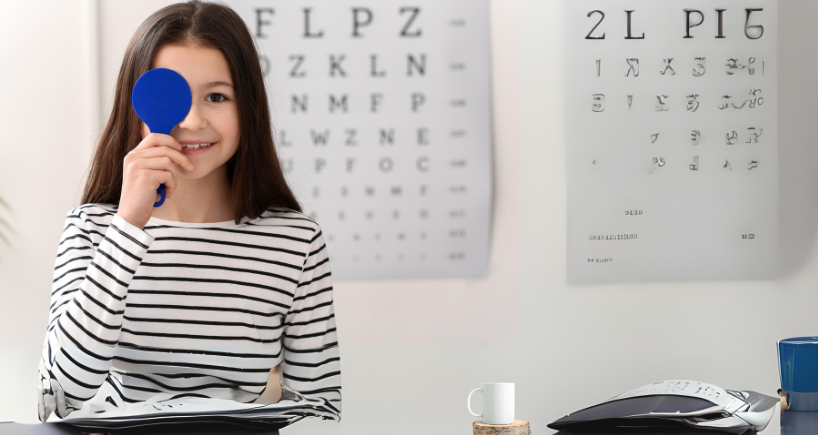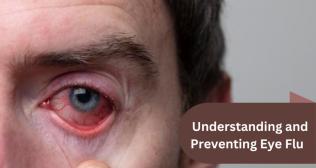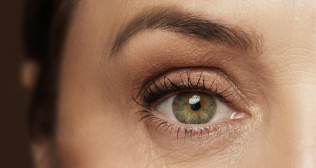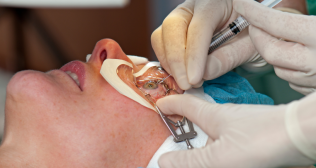
The Importance of Eye Hygiene in the Rainy Season
The rainy season brings a welcome respite from the heat, but it also presents unique challenges for maintaining eye health. Increased humidity, puddles of stagnant water, and the spread of allergens and pathogens create an environment ripe for eye infections and irritations. Understanding the importance of eye hygiene during this season is essential to prevent common monsoon-related eye issues and ensure clear, healthy vision.
Common Monsoon Eye Issues
Conjunctivitis (Pink Eye)
Conjunctivitis is a highly contagious eye infection characterized by redness, itching, and discharge. It is caused by bacteria, viruses, or allergens that thrive in moist environments, making the rainy season a prime time for outbreaks.
Stye
A stye is a painful lump on the edge of the eyelid, resulting from a bacterial infection of the oil glands. Monsoon conditions, with their mix of heat and humidity, can exacerbate the risk of styes due to increased exposure to dust and sweat.
Fungal Infections
Fungal keratitis is a serious infection that can occur when the eyes come into contact with contaminated water or soil. The humid conditions of the monsoon create an ideal breeding ground for fungi, posing a significant risk to eye health.
Dry Eyes
Despite the high humidity, many people experience dry eyes during the rainy season. Wind and constant exposure to moisture can cause the tear film to evaporate more quickly, leading to dryness and irritation.
The Importance of Eye Hygiene
Maintaining proper eye hygiene is crucial during the monsoon season to prevent these common issues and ensure overall eye health. Here are some key practices to incorporate:
1. Regular Hand Washing
Washing hands frequently with soap and water is one of the simplest yet most effective ways to prevent the spread of infections. Our hands come into contact with countless surfaces and can easily transfer bacteria and viruses to our eyes. Make it a habit to wash your hands before touching your face or eyes.
2. Avoid Touching or Rubbing Your Eyes
Touching or rubbing your eyes can introduce pathogens that cause infections. If your eyes feel itchy or uncomfortable, use a clean tissue or a sterile eye drop to soothe them rather than using your fingers.
3. Use Clean Towels and Handkerchiefs
Always use clean, dry towels and handkerchiefs to wipe your face and eyes. Sharing these items can spread infections, so ensure that everyone in your household has their own set.
4. Protect Your Eyes from Rainwater
Rainwater can carry pollutants and harmful microorganisms. Avoid direct exposure to rainwater, and if your eyes do get wet, rinse them with clean, sterile water to remove any contaminants.
5. Avoid Using Contact Lenses
If possible, limit the use of contact lenses during the monsoon. The humid environment can make it easier for bacteria to grow on lenses, increasing the risk of eye infections. If you must wear them, ensure they are thoroughly cleaned and disinfected.
6. Wear Sunglasses
Wearing sunglasses can protect your eyes from dust, debris, and rainwater, reducing the risk of infections and irritations. Choose sunglasses with UV protection to also shield your eyes from harmful ultraviolet rays.
7. Maintain a Clean Environment
Keep your living and working spaces clean to minimize exposure to dust and allergens. Regular cleaning can help prevent the buildup of mold and other irritants that can affect eye health.
8. Stay Hydrated
Proper hydration is essential for maintaining a healthy tear film, which protects your eyes from dryness and irritations. Drink plenty of water throughout the day to keep your body and eyes well-hydrated.
9. Consult an Eye Specialist
If you experience any symptoms of eye infections or prolonged discomfort, seek medical advice promptly. Early detection and treatment of eye issues can prevent complications and ensure a swift recovery.
Categories
Clear allMeet the doctor

- Ophthalmology | Ophthalmology
-
25 Years
-
1600



















